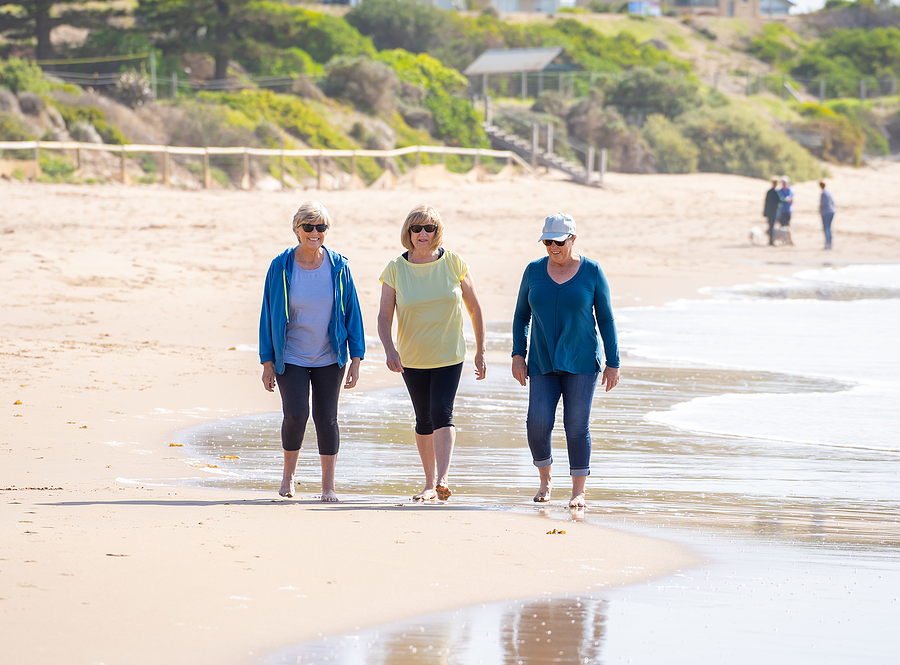A recent study concluded that walking for 11 minutes a day could reduce our risk of an early death by 10 per cent. But maybe there are better reasons to put on our walking shoes.
That’s because the benefit of exercise isn’t just physical or about what might happen in the future. It’s also mental and emotional and can strongly affect our everyday quality of life.
Here are six ways heading out for a stroll might make that kind of difference.
It makes us feel better
Early risers can catch some morning sun. Sunlight activates the production of serotonin in the nerve cells of our body, lifting our mood and helping us to feel calm and focused.
Even if you’re not an early bird, a dose of sunshine later in the day is still a great tonic.
It helps to balance blood sugar
I wrote a piece last year about a young scientist called Jessie Inchauspé whose expert subject is blood sugar.
One of her tips for keeping it stable is to exercise for a few minutes within 70 minutes after a meal. So ideal times to take a walk are following breakfast, lunch or dinner.
Stable blood sugar doesn’t just reduce our risk of chronic disease. It makes us feel more alert and alive, and helps our gut to work better.
It improves sleep
I know, plenty of us walk or exercise regularly and still have a crummy sleep here and there, but it’d likely be worse if we didn’t.
It can provide time with the people in our lives
Walking can be a way to catch up with friends, our partner, or other family members. Sometimes, in the hurly burly of life, it’s easy to go for too long without checking in on the people who matter to us, and walking together can be a great way to connect.
It reduces stress
The beauty of a walk is that we can do it solo too. It provides time to listen to audiobooks or podcasts if that’s what we want to do, but it’s also a chance to observe what’s around us — trees, sky, gardens, houses, birds, children, dogs, and so on. Often, we’ll see something that puts a smile on our face.
And walking clears the clutter in our heads. If we have something to resolve, we’re often better at seeing the way forward after a walk.
It helps us know our neighbourhood
Remember all the people we met walking their dogs during covid lockdowns?
Walking can help us connect with our community. Even if it’s just a hello to the man with the dachshund or the woman who jogs in red shoes, it provides a sense of familiarity and a relationship to where we live.
Finally, if you’re wondering why 11 minutes is significant, UK researchers picked through almost 200 studies to deduce that if we walk for the equivalent of 75 minutes a week, statistically we reduce our risk of dying from diseases such as cancer or cardiovascular disease. That works out at almost 11 minutes a day.
Which is terrific. And, of course, it doesn’t need to be walking. Pick any activity you like.
But the biggest benefit might well be the one we get here and now.
Acknowledgement: US biomechanist and walking enthusiast Katy Bowman wrote about this topic recently, and her thinking informed my own. (A biomechanist studies the mechanics of movement, looking at angles, forces and so on.)
Photo Source: Bigstock

